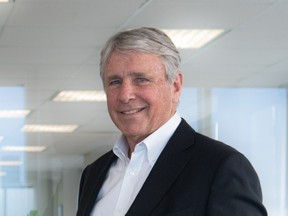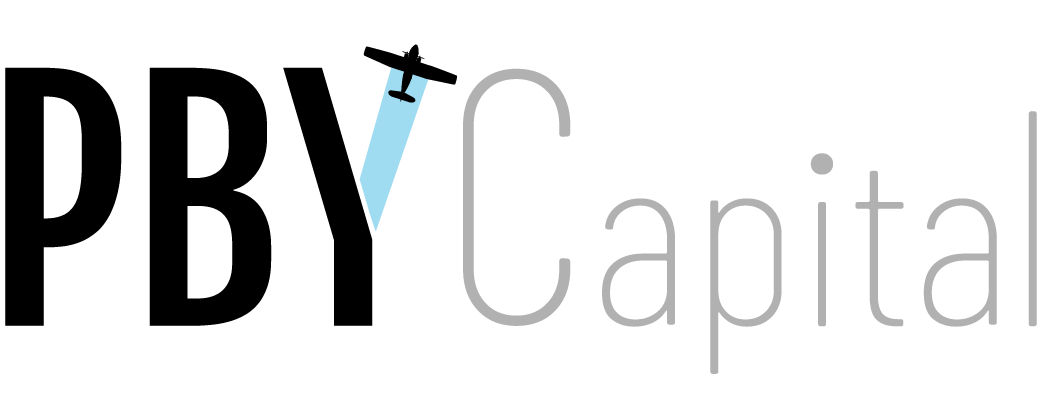PE investor Tom Kennedy on turning ‘okay deal into a spectacularly great deal’
Chair and founder of Kensington Capital strikes it big as fund giant AGF buys controlling interest

Article content
Tom Kennedy grew up working on an apple farm. He recalls making 25 cents an hour in the orchard and at his father’s other businesses. He and his three siblings definitely learned the value of a dollar.
Later, at a Calgary energy company, he built on that wisdom by learning how to turn an okay deal into a spectacular one from a creative chairman.
Today, Kennedy is chair and founder of Kensington Capital Partners, a private equity fund manager in Toronto. The $2.8 billion firm also invests in alternative assets such as mortgages, private debt, venture capital and hedge funds.
Kennedy and his partners recently struck it big: Canadian fund giant AGF, with $43 billion in assets under management, pledged a strategic investment of $45 million, securing a majority stake in Kensington. As part of AGF, Kensington will benefit from its broad distribution, product development expertise and operating infrastructure. Further, as Kensington looks to expand into the U.S. and overseas markets, AGF will be the ideal partner to help accelerate those initiatives.
Kennedy recently spoke about his upbringing, how his experiences led him to start Kensington, and how he would invest $1 million today.
Where did you grow up?
I grew up in Woodstock, Ontario, and lived there until I went to Queen’s University. We had an apple orchard with 1,261 trees and five different varieties of apples. I still like apples; I eat one or two per day. Spy is my favorite – I find them to be thirst-quenching.
I have two brothers and one sister. We are all four years apart because my parents didn’t think they could afford to have two of us in university at the same time. I can’t imagine the planning that went into that … so romantic!
We always had two dogs, and the old dog’s job was to teach the young dog what to do. My mother was a very strict disciplinarian: She was the only thing on the face of the earth that our dogs were ever afraid of.
Did your parents teach you anything about money or success?
My father was a small town businessperson. In addition to the farm he owned a Ford dealership and some real estate investments. Along with my siblings I worked for my dad as far back as I can remember for 25 cents an hour, either on the farm or at his other businesses. We didn’t have any overt lessons about striving for success, but we all grew up understanding the value of a dollar. I didn’t have the sense as a kid that we were particularly well off – there was no real social demarcation.
How did you get to where you are?
Starting out after university I had no money and was focused on getting the highest paying job possible because I wanted to go to grad school.
I got a job with a U.S. mining company, where I learned about management, workplace safety and workplace conditions. The toughest part was that they ran an underground coal mining operation, and there was a steady stream of people being killed in the mine. Most weekends involved a funeral, and I had the difficult job of finding the widows (most of them were just 18 to 20 years old) to tell them the sad news and give them two weeks’ pay to “compensate” for their husband’s death.
I always say that if fear and greed are the two big motivators, it is my fear of ever going back to that job that keeps me going.
My U.S. visa expired while I was in business school, so I later joined a Calgary-based oil and gas company as a junior engineer and worked there for nearly 10 years. The company had interests in the oil sands and the coal business, and I had the good fortune to work for the chairman, who was one of the best dealmakers I have ever seen. He was extremely creative. … I learned how to turn an ‘okay’ deal into a ‘spectacularly great’ deal, and that’s what got me to where I am today.

I joined the Alfred Bunting & Co. brokerage house in January of 1984 and worked on private placements. In those days the CEO could talk one-on-one with analysts, and we had some top analysts. Our trading desk knew what the money wanted to do, and our analysts knew what the CEOs wanted to do. We would arrange private placements on a confidential basis to fund takeover bids. We would take a fee only if the deal went through.
In 1989 Bunting was sold, and then I joined Lancaster Financial as a partner, which was sold to TD Bank in 1995.
How did you get your big idea to start Kensington?
By 1996 I had developed quite a bit of M&A experience. NAFTA was relatively new, and founders of post-WWII businesses were getting older and ready to sell. I thought I could make a living finding good management teams who wanted to buy the businesses they ran and needed capital. I decided to take the money I had made to date and start Kensington, and the business model was to back management and grow the business so they could eventually buy us out.
Starting out in 1996 I had only one deal, so I had to do a lot of knocking on doors. This paid off incredibly well, and in our first six years we generated an IRR north of 60 per cent. I wasn’t sure if this early success would be sustainable: Was it dumb luck or good timing?
In 2002, we decided to raise capital from third parties and invest in the infrastructure needed to manage other people’s money. Kensington invests its own capital and that of institutional and individual investors in private companies and private equity funds, hedge funds, private debt funds, and we have an interest in a mortgage lender.
Today we are a team of 41 managing over $2.8 billion.
What was behind your recent decision to sell a majority stake in Kensington to AGF?
One of our reasons to partner with AGF was that big institutional investors have been critical of us for being too small. We have now received the go-ahead from one major investor who wanted to see us get some bulk behind us.
An even more important reason to partner with AGF was that access to capital is essential to our business. We have good distribution in Canada but nowhere else in the world. As we look to expand into the U.S. and overseas markets, AGF’s established relationships and distribution reach into those regions makes them the ideal partner to accelerate our growth initiatives.
Does Kensington invest in alternative investments?
The definition of alternative investments seems to be in the hands of the person making the pitch. To me alts are investments that are outside of the mainstream, so not real estate, stocks or bonds. Our focus is on private equity, but we also invest in private debt, growth, venture and hedge funds.
The Canadian investment community is largely just starting to look at alternative investments (alts). The 5 or 10 big pension funds in Canada are well established in that space, but the vast majority of investors have been tiptoeing into it.
If you had $1 million to invest right now, what would you do?
My own view is that the private equity market is substantially larger than the public equity market. The public equity market is approximately US$110 trillion globally (mainly traded on 4 or 5 major exchanges). I don’t have the exact data, but this is about one-quarter the size of the private equity market. Why limit yourself to a smaller market?
The vast majority of enterprise is private … the only reason to go public is access to capital. The big companies that flourish in the public market have billions of dollars in float: there are a finite number of businesses that can take advantage of the public market. In North America, Europe and Asia most businesses are private. I think there will be a sizable imbalance between supply and demand for private equity for a long time, so returns for private equity will continue to be much better, which is why you want it in your portfolio.
The geopolitical and economic environment right now is causing investors to be cautious and lean toward yield/safety versus risk. People are looking for lower, risk-free returns versus higher, risky returns. As a retail investor, I would invest that $1 million half in equities and half in debt and real estate. I would split the equity component equally between private equity and public equity.
How is Kensington positioned for 2024?
The cost of capital has increased quite a bit over the last couple of years, causing the sale of many businesses. Venture and growth have been marked down. There is a good buying opportunity in private equity, and we will take advantage of this.
In the last six months we’ve had people who had walked away from deals come back to the table. Investment opportunities are more in favour of the buyer than the seller today across the board in private equity. I don’t think this is going to change in a hurry.
What do you do for fun?
I work out regularly, but to me that is just table stakes, so that you can do the things you enjoy in life. I love to ski: downhill, cross-country and skate skiing. I also love to play tennis – tennis is a happy place for me.
I read a ton! I can never keep up with the stack of books that I accumulate. And I enjoy playing the piano by myself when no one is home. I’ve played piano all of my life and find it very relaxing. I generally play by ear. From Beethoven to Coldplay, from Brubeck to Procol Harum … and of course Willie Nelson. Music is wonderful!
Responses have been lightly edited for clarity and length.
Writer Barbara Stewart is a Chartered Financial Analyst (CFA) with 30 years of investment industry experience. She spent five years as a foreign currency trader, more than two decades as a portfolio manager for high-net-worth entrepreneurs, and for the past six years she has been performing interview-driven research for financial institutions around the world. Barbara is a keynote speaker for CFA Societies, banks, stock exchanges and industry conferences globally, and she is a columnist for CFA Institute and Canadian Money Saver magazine. She is on the advisory board of Kensington Capital Partners and also is the Ambassador for the Kensington Women’s Forum. In addition, 13 years ago Barbara saw a need to challenge outdated financial industry stereotypes and share positive messages about women and money. Today, Barbara is recognized worldwide as one of the leading researchers in women and finance. Her Rich Thinking® global research papers quote smart women and men of all ages, professions and countries and are released annually on International Women’s Day, March 8. To find out more about Barbara’s research, visit www.barbarastewart.ca.

Please visit here to see information about our standards of journalistic excellence.



